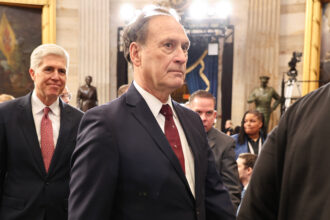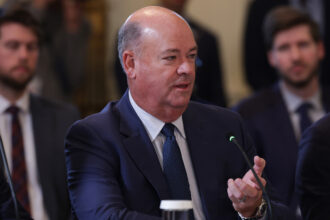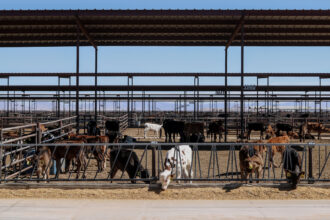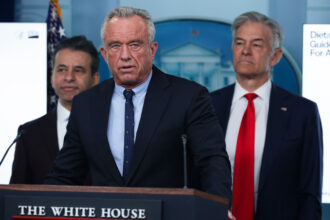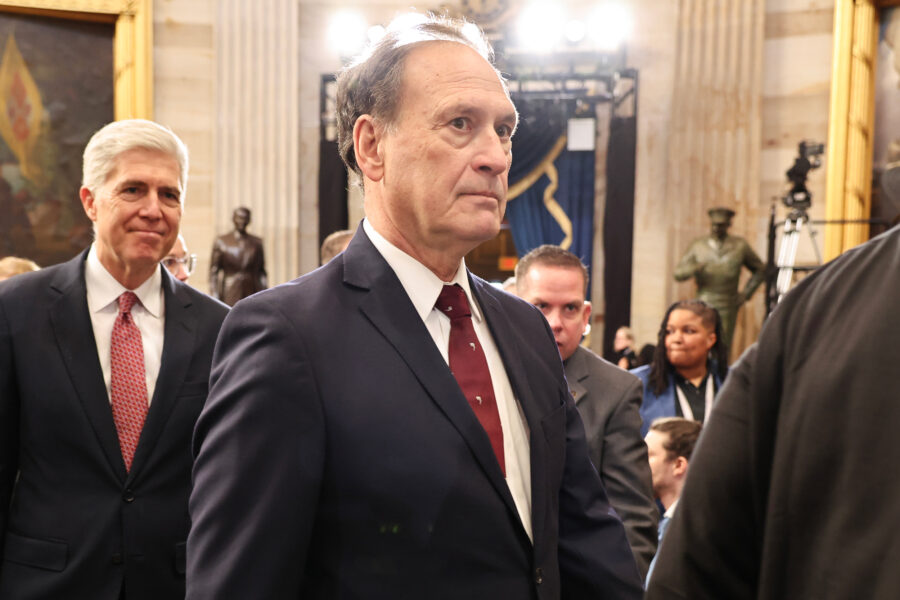Reporting from Copenhagen
U.S. President Barack Obama called on the world today to adopt a three-part framework of mitigation, transparency and financing to unclog global climate change talks in Copenhagen. He warned in the summit’s final hours that "our ability to take collective action is in doubt and hangs in the balance."
The plan offers "a clear formula — one that embraces the principle of common but differentiated responses and respective capabilities," Obama said, referring to a UN principle that developing nations frequently point to in calling for greater emissions cuts and concessions from developed nations.
"It adds up to a significant accord — one that takes us farther than we have ever gone before as an international community," Obama said. He called it America’s "bottom line."
"We can embrace this accord, take a substantial step forward, and continue to refine it and build upon its foundation … or we can again choose delay," he said.
The U.S. president’s speech before almost 120 heads of state from nations around the world, while urging action, offered no promises of success out of Copenhagen, and he announced no new agreements.
On the final day of the two-week conference, the talks were in crisis, with the U.S. and China locked in a game of chicken over how and to what degree to hold each other accountable to commitments over financing and greenhouse gas cuts.
Chinese Premier Wen Jiabao did not attend a meeting Obama held with 18 world leaders this morning, sending Vice Foreign Minister He Yafei in his stead — an indication of just how deeply deadlocked, if not acrimonious, the talks between the two superpowers have become. The two leaders instead held a bilateral meeting.
The Dec. 7-18 conference is the culmination of a two-year process that was launched in Bali and was supposed to yield the first truly global accord to address worsening climate change.
“To say that we are disappointed is an understatement,” Lesotho Prime Minister Pakalitha Bethuel Mosisili said in a speech immediately following Obama’s. However, speaking as one of the least-developed countries, he praised Obama for getting the United States to at least join the rest of the world in searching for a solution.
Obama put forward the current U.S. position in his speech, saying:
"As the world’s largest economy and the world’s second largest emitter, America bears our share of responsibility in addressing climate change, and we intend to meet that responsibility."
On financing, he repeated previous pledges "to be a part of fast-start funding that will ramp up to $10 billion in 2012" and "engage in a global effort to mobilize $100 billion in financing by 2020" on this condition: that it be "part of the broader accord that I have just described."
"There is no time to waste. America has made our choice. We have charted our course. We have made our commitments. And we will do what we say."
"No matter what happens in Copenhagen," he said, "America is going to continue on this course of action."
The U.S. president urged the nations of the world to act together:
"It is in our mutual interest to achieve a global accord."
See also:
Poor Nations Issue ‘Save Kyoto Protocol’ Plea in Lead-Up to Copenhagen
Obama Going to Copenhagen with 2020 Greenhouse Gas Target
Poor Demand Binding Treaty in Copenhagen, as Rich Squash Hope
Deal-Breaking Splits Remain over Global Warming Temperature Target
Tech Transfer Stymied by Lack of Climate Funding from Rich
Adapting and Mitigating Climate Change: A Deeply Nuanced Approach
About This Story
Perhaps you noticed: This story, like all the news we publish, is free to read. That’s because Inside Climate News is a 501c3 nonprofit organization. We do not charge a subscription fee, lock our news behind a paywall, or clutter our website with ads. We make our news on climate and the environment freely available to you and anyone who wants it.
That’s not all. We also share our news for free with scores of other media organizations around the country. Many of them can’t afford to do environmental journalism of their own. We’ve built bureaus from coast to coast to report local stories, collaborate with local newsrooms and co-publish articles so that this vital work is shared as widely as possible.
Two of us launched ICN in 2007. Six years later we earned a Pulitzer Prize for National Reporting, and now we run the oldest and largest dedicated climate newsroom in the nation. We tell the story in all its complexity. We hold polluters accountable. We expose environmental injustice. We debunk misinformation. We scrutinize solutions and inspire action.
Donations from readers like you fund every aspect of what we do. If you don’t already, will you support our ongoing work, our reporting on the biggest crisis facing our planet, and help us reach even more readers in more places?
Please take a moment to make a tax-deductible donation. Every one of them makes a difference.
Thank you,




